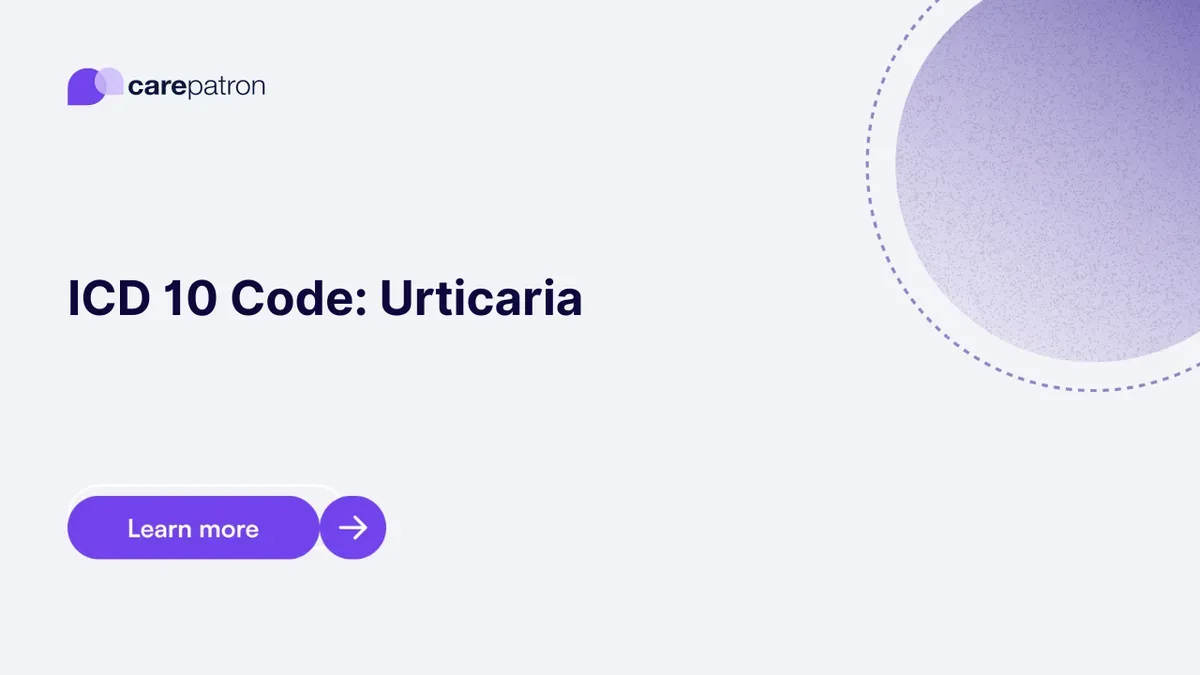
Urticaria ICD-10-CM Codes | 2023
Read this short guide to learn about the Urticaria ICD codes you can use!
Use Code
Commonly asked questions
Since urticaria occurs when histamine is released, the most basic way to treat it is to consume antihistamines.
Avoiding their triggers is the best way to prevent getting urticaria. If urticaria is caused by allergic reactions to particular food and fluids, the person must adjust their diet accordingly. If it’s caused by stress, the person must avoid their triggers or find ways to manage and relax.
Yes, urticaria, for the most part, isn’t serious. However, some people might have severe allergic reactions that their Hives persist for months. For such cases, it would be best to see a doctor, especially if the allergic reactions cause swelling.
EHR and practice management software
Get started for free
*No credit card required
Free
$0/usd
Unlimited clients
Telehealth
1GB of storage
Client portal text
Automated billing and online payments
